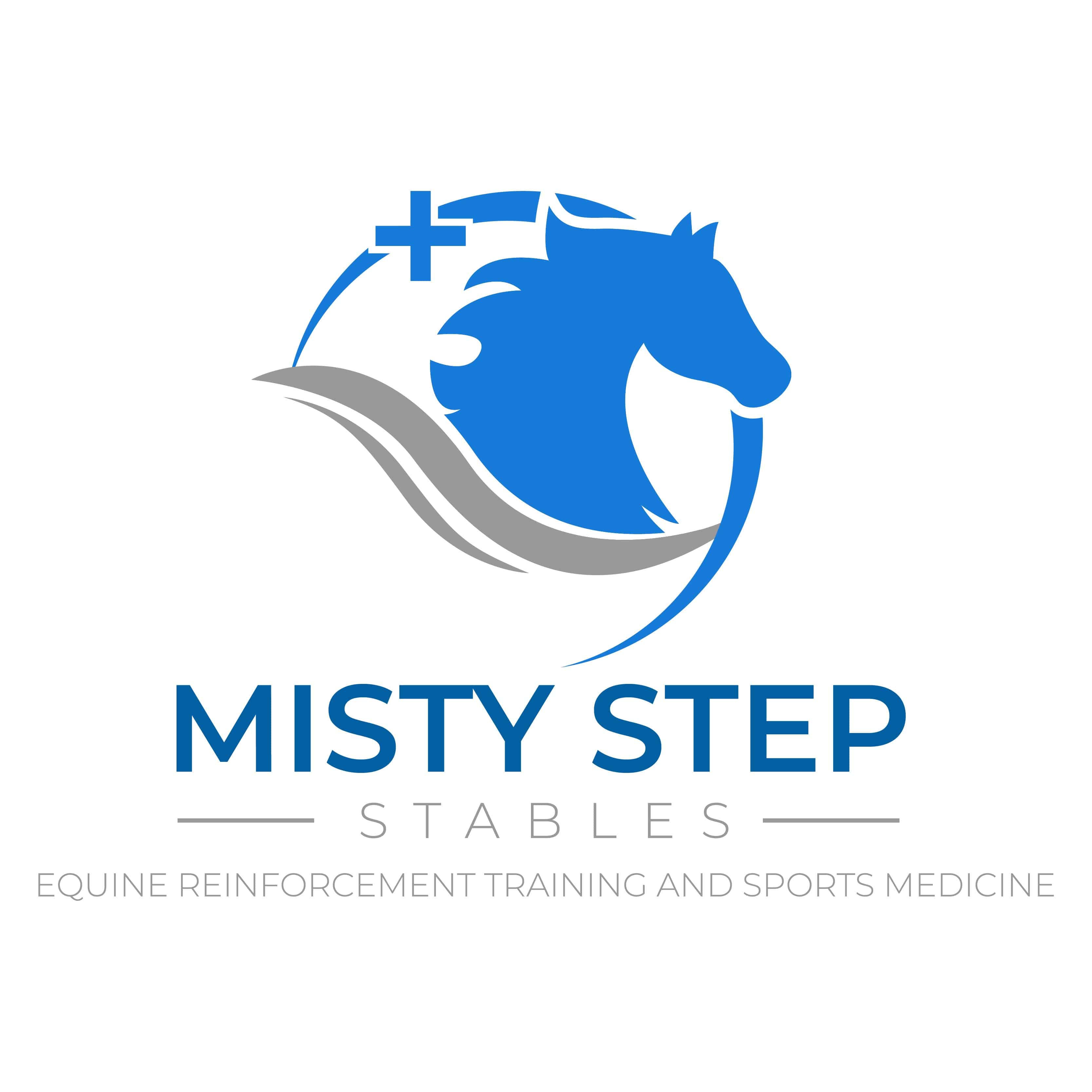Training Philosophy
Equine Learning Theory in Practice
Equine training can be broken down into two basic types of learning: associative and non-associative learning. Although this is a different way to talk about how to train, many traditional horse training methods actually utilize these principles, so many experienced riders will understand some parts of learning theory instinctively! To train most effectively, we look at our horses with an unbiased eye, keeping in mind these principles that govern behavior, as well as the cognitive limits of our equine partners, and their individual strengths and weaknesses. In keeping with the current behavior research, at Misty Step we try to use reinforcement training whenever possible over punishment training. For example, we use treats to train on the ground and under saddle, which has been an extremely effective training aid, and can be used for more than just trick training! These methods of training are growing in popularity fast! For more information on the science of equine learning, check out our upcoming talks, and other great sources listed below:Using veterinary expertise
A horse's performance certainly depends on their physical comfort and other aspects of their health. Relevant medical problems might stem from leg lameness, lameness from their back or pelvis. their gut health, their teeth, their eyes or their muscle distribution (among other things!). Problems in any of these areas will affect whether or not they can do what we ask, and how easily. At Misty Step we watch and listen to what the horse is telling us, and use thorough and multi-faceted examination to diagnose and treat relevant medical issues. For many reasons, we want our horses to be the most comfortable that they can be. Not least of all, research has shown that stress and pain is detrimental to learning!Enjoying the sport
We ride horses because we love it! But our sport suffers from a detrimental amount of judgement on ourselves and other riders, and negative self talk. We can always learn more and improve our riding, but at Misty Step we like to emphasize enjoying the ride as well! In our lessons, we try to create exercises that are challenging, but where the horse and rider team can find some successes and build towards their greater performance goals. We try to "ride the horse we have" not the horse we wish we had. We believe the best way to improve is to have the most accurate information, and a non-judgemental and unbiased attitude.
Further reading:
- The International Society for Equitation Science (ISES) website.
- Shawna Karrasch from "On Target Training" website.
- Via Nova Training website.
- Look up Dr. Sue McDonnell. She is a PhD and equine behaviorist at New Bolton center. Link to some of her articles!
- Look up Dr. Gemma Pearson. She is a british veterinarian and equine behaviorist. Link to some of her videos!
- Look up Dr. Andrew McLean. He is an Australian equine behavior expert, trainer and equine cognition phD. Link to some of his videos and papers!
